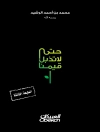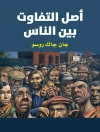This book is a novel contribution to academic discourses on the coronavirus (COVID-19) crisis and how it has impacted societies globally. It proffers an overview on the social development and political measures, from both the Global North and Global South, to prevent COVID-19’s spread. It illuminates major social, political and economic challenges that already existed in different contexts and which are also currently being amplified by COVID-19. Curiously, this global pandemic has opened spaces for different actors, across the globe, to begin to fundamentally question and challenge the hegemony of the Global North, which sometimes is evident in social work. Linked to the foregoing and while reflecting beyond the pandemic and into the future, the book proposes that social work must become more political at all levels, and strive to transform societies, global social development efforts, and economic and health systems.
This contributed volume of 38 chapters discusses andanalyses ethical, social, sociological, social work and social development issues that complement and enrich available literature in the socio-political, economics, public health, medical ethics and political science. It provides various case studies which should enable readers to gain insights into how countries have responded to the pandemic and learn how COVID-19 negatively impacted countries in different parts of the world. This book also provides a platform for the articulation of neglected and marginalized voices, such as those of indigenous populations, the poor, or oppressed. The chapters are grouped according to three main themes as they relate to research on the COVID-19 pandemic and social work in Africa, Asia, Europe, Latin America and North America:
- Analysis: Social Issues and the COVID-19 Pandemic
- Strategies and Responses in Social Work: Globally and Locally
- Outlook: Looking Ahead Beyond the Pandemic
Intended toengage a global, diverse and interdisciplinary audience, The Coronavirus Crisis and Challenges to Social Development is a timely and relevant resource for academics, students and researchers in inter alia Social Work, Philosophy, Sociology, Economics, and Development Studies.
Mục lục
Part I. Analysis: Social Issues and the COVID-19 Pandemic .- 1. Mehta et al: COVID and Social Work Voices from India and Australia: Strategic and Meaningful Solidarities for Global Justice.- 2. Wadhwaniya et al: Examining Decent Work During COVID-19: With Reference to Female Workers in South Asia.- 3. Koehler: The Impact of COVID-19 on the ‘Culture of Deportation’ for Refugees from African Countries in Germany.- 4. Jung et al: Corona Challenging Social Work in Korea and Vietnam.- 5. Jaji: COVID-19 Safety Measures and Socioeconomic Status in Urban Zimbabwe.- 6. Bukuluki et al: Face Mask Wearing in Kampala, Uganda.- 7. Mfoafo-M’Carthy et al: Implications of the COVID-19 Pandemic and Responses on Persons with Disabilities Including Psychosocial Disabilities in the Global South: The Case of Ghana.- 8. Minenhle et al: Lockdown in a Dual Society: Exploring the Human Capability Implications of the Coronavirus (COVID-19) in South Africa.- 9. Nemutandani et al: The Exposition of the Stark Realities of an Unequal Society Based on the COVID-19 Pandemic.- 10. Serupia et al: The COVID-19 Crisis: Impact of Social Attitudes and Representations on Social Development in Sub-Saharan Africa.- 11. Seruwagi et al: Knowledge, Adherence and the Lived Experiences of Refugees During COVID-19.- 12. Sehlabane et al: The Impact of COVID-19 Among the Vulnerable Population of Children and Youth in Lesotho: The Circle of Courage Perspective.- 13. Dlamini et al: Analysing the Situation of Migrants and Social Work Interventions in South Africa During the Coronavirus (COVID-19) Pandemic.- 14. Brigido et al: Impacts of the COVID-19 Pandemic on International Migration in Brazil: Normative, Economic, and Social Issues.- 15. Redin et al: From the Absence of Public Policies to a State of Emergency: The COVID-19 Pandemicand the Migrant Subject Condition.- 16. Curzio: Social Justice in the Time of COVID-19: Transcend Borders – From the Micro to the Macro, from Patagonia Argentina to the World.- 17. Mauersberger: Colombian Women Between the Pandemic and Armed Conflict and Poverty.- II. Strategies and Responses in Social Work: Globally and Locally .- 18. Castilla et al: Ecuador’s and Iran’s Response to protect refugees and migrants in vulnerable situations during the COVID-19 pandemic.- 19. Kashaija et al: “Am I an Essential Worker?” COVID-19 and (Re)shaping of the Social Work Profession in Uganda.- 20. Singh et al: Responses of Social Work Students and Teachers to COVID-19: Experiences from Crisis Relief in Urban Slum and Rural Communities of Maharashtra, India.- 21. Hamisultane et al: COVID-19, Hyper Vulnerabilities, Silenced Traumas and Colonial Scars: Social Work Scholars Engaging in Critical Dialogue with Racialized Communities.- 22. George: The Kerala, India Experienceof Facing the COVID-19 Pandemic .- 23. Dudgeon et al: Responding to COVID-19 and Beyond: Key Recommendations for the Effective Public and Mental Health Response to Support the Wellbeing of Aboriginal and Torres Strait Islander Peoples in Australia.- 24. Okoye et al: COVID-19 Pandemic in Nigeria: A Story Worth Telling from the Eyes of Social Workers.- 25. Atwine et al.: COVID-19 Pandemic and the Urban Poor: The Relevancy of Uganda’s Social Protection Measures.- 26. Chikadzi et al: Social Work as an Unwitting Enabler of Oppression and Disenfranchisement of the Masses: A Freirean Analysis of Social Workers’ Perspectives on the Government of Zimbabwe’s COVID-19 Response.- 27. Lanza et al: The Professional Practice of the Brazilian Social Worker: Problems About the Impacts of the COVID-19 Pandemic.- 28. Reininger et al: Front-line Social Workers’ Practices Under the Political and Sanitary Crisis in Chile.- III. Outlook: Looking Ahead Beyond the Pandemic .- 29. Bedurke, Lars: Time for New Epistemological Inquiries, the Global South and Resilience in the Time of COVID-19.- 30. Vaughn et al: Decolonising Safeguarding During a Pandemic: Lessons for Research Praxis in International Social Work.- 31. Brady et al. Participatory Photography, Ethical Storytelling and Modern Slavery Survivor Voices: Adapting to COVID-19.- 32. Pfaffenstaller et al. Social Work in the Time of a Pandemic: COVID-19 and the Need for Resilience-critical Thinking.- 33. Chikadzi: A Social Work and Social Development Perspective on the Need to Decolonise African Economies in Light of the COVID-19 Pandemic: Lessons for Africa.- 34. Noyoo: Critiquing Western Development Paradigms and Theories in the Age of the Coronavirus (COVID-19): An African Perspective.- 35. Ortiz-Rico: How Has Population Health Accelerated Through Integrated Indigenous Social Networks? Opportunities During the COVID-19 Pandemic.- 36. Valdebenito-Acosta et al: Soup Kitchens and Radical Social Work Against COVID-19 from Liberation Theology in Chile.- 37. Afeworki Abay et al: Overcoming the Socioeconomic Impacts of the Coronavirus Pandemic: Social Work Perspectives and Postcolonial Reflections from Ethiopia.- 38. Concluding Remarks and Summation.
Epilogue
Giới thiệu về tác giả
Maria do Carmo dos Santos Gonçalves is director and researcher at the Scalabrinian Center for Migratory Studies in Brazil. She has a long experience in the field of social work in Brazil, working in the care of migrants and refugees. Her research interests include biographical and ethnographic narrative research, studies on contemporary diasporas, migration and refugees, the Middle East and Islam.
Rebecca Gutwald is a senior researcher at the Munich School of Philosophy, Germany, in a collaborative research project on the ethical use of algorithms in social work and child protection services. Previously, she was academic director of the graduate school on Ethics, Culture and Education at the Munich School of Philosophy, as well as associate professor of philosophy at the University of Munich, Germany. Her main areas of research are political philosophy, the capability approach and the normative foundations of social justice. Her current focus lies on the topicof disadvantage, resilience and global social justice.
Tanja Kleibl is currently Professor for Social Work, Migration and Diversity at the University of Applied Sciences Würzburg-Schweinfurt (FHWS), Germany, and Research Associate at the University of Johannesburg, South Africa. She is also Director of the Master’s Programme “International Social Work with Refugees and Migrants”. Previously, she was Professor for Scientific Foundations of Social Work at the University of Applied Sciences Augsburg and Associate Professor for Social Work at the Catholic University of Applied Sciences Munich. Her main research and teaching promotes knowledge and debate about discourses and concepts of development, migration and mobility, civil society as well as governance from postcolonial perspectives. Her emphasis is on social development and social work in the Global South whilst applying a political economy lens to enquiring about differences and contestations in the Global North. Shebrings together 15 years of extensive practice and research experience in development cooperation and migration.
Ronald Lutz, Dr. phil. Sociologist and Anthropologist, is Lecturer at University of Applied Sciences of Würzburg-Schweinfurt, Germany; Lecturer at University of Applied Sciences of Erfurt, Germany; and Research Associate at the School of Social Work, University of Johannesburg, South Africa. From 1993 to March 2019, he was Professor at the Faculty of Applied Social Sciences at the Erfurt University of Applied Sciences, Germany. His fields of interest include poverty, social politics, social development, and international relations.
Ndangwa Noyoo is a Professor and former Head of the Department of Social Development at the University of Cape Town (UCT), South Africa. He is also Director of the Zola Skweyiya African Social Policy Innovation (ZSASPI) at UCT. Previously, he worked at the University of Johannesburg in the Department of Social Work asan Associate Professor. He was also employed by the South African Government in the Department of Social Development as a Chief Director / Social Policy Specialist, and the University of the Witwatersrand’s Department of Social Work as a Senior Lecturer and Deputy Head of Department.
Janestic Twikirize is Senior Lecturer in the Department of Social Work and Social Administration, Makerere University, Uganda. She holds a Ph D in Social Work and Social Development and an MA in Social Sector Planning and Management. She has also served as a visiting Lecturer at Gothenburg University in Sweden, University of Stavanger in Norway and Lincoln University in the UK. She has published over 20 scientific papers including four books, and has made over 30 presentations in International conferences in the past 5 years. She was previously Vice President of the Association of Schools of Social Work in Africa and a Board member of the International Association of Schools of Social Work (IASSW) until 2018. Between 2012 and 2018, she served as the East Africa regional Coordinator of PROSOWO, a 6-member advanced academic partnership that worked to strengthen professional social work in East Africa.












